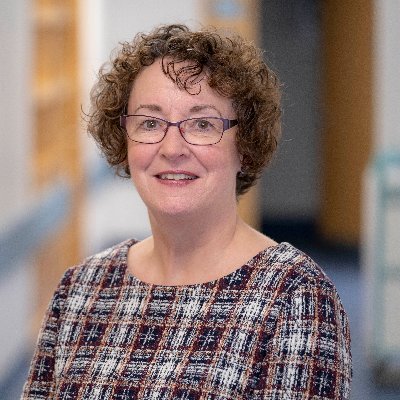Interviewed by Ayodeji Matuluko
Glasgow Caledonian University (GCU)’s Students’ Association hosts annual Teaching Awards to recognise staff across the University who have gone above and beyond to ensure that GCU students have a great learning experience. This year’s Teaching Awards took place online on Thursday 19th May 2022!
The Awards are given in different categories, one of which includes the ‘Sensational Supervision Award’. We are delighted to share that this year the award went to GCU Professor and member of the SHIP team, Professor Kay Currie. This is the second time a SHIP researcher will scoop this award.

Professor Kay Currie is Professor of Nursing and Applied Healthcare Research in the Department of Nursing and Community Health, where she is involved in social science based infection prevention & control research. She is also Associate Dean for Research in the School of Health and Life Sciences. Her current doctoral supervision includes a range of projects related to infection prevention, such as: nurse prescribing of antibiotics; the implementation of care bundles; patients’ experiences of antibiotic use; the acceptability of rapid diagnostic testing as a guide to antibiotic prescribing; the use of isolation in contemporary NHS settings; interventions to overcome barriers to antimicrobial stewardship.
In this blog we interviewed Professor Kay Currie to learn from her experience and asked her for some hints and tips on how to be an excellent supervisor.
Interviewer: Congratulations on winning the Sensational Supervision award! Could you please share with our readers a bit about your journey as a researcher?
Kay: It has been a long journey! I was first involved in research in my Masters of Nursing dissertation in 1990, when I worked as a Sister (Ward Manager) in Coronary Care. I later moved into nurse education, joining GCU in 1995 and completing my PhD in 2006. Initially I led educational research projects, mostly funded by NHS Education Scotland, related to advanced practice roles. Around 2009 an opportunity became available to lead qualitative research related to staff and patient perspectives of infection prevention and control measures; this was the beginning of my journey into what became the SHIP Research Group (Safeguarding Health through Infection Prevention) and I’ve never looked back! What I’ve learned during that journey is the importance of being flexible – IPC was never an area of expertise for me, but qualitative research and patient experience was!
Interviewer: How does it feel to be recognised as a ‘Sensational Supervisor’ in this year’s Teaching Awards?
Kay: Fantastic! After 26 years at GCU, this is my only Teaching Award! The fact that some of my PhD students valued my work with them and took the time to nominate me for the award was greatly appreciated, very humbling. Gaining this award this year is particularly valuable to me, as I will be retiring in the coming year, so this is a real high to be ending my career with!
Interviewer: Do you have any hints or tips for researchers to excel at supervision, or any final words?
Kay: I have lots of principles that I try to apply when working with PhD students, but I think the most important one is empathy – I try to put myself in that person’s shoes when I’m giving feedback, what would it feel like to see those comments? I believe it is important to be honest but constructive, with a good measure of compassion. Doing a PhD is a difficult task, and not everyone can make it through, so the supervisor has to be part of that reflective process to try to keep up momentum. Be patient, be encouraging, make expectations clear, maintain high standards, celebrate every little achievement, and look forward to the day you see your PhD student graduate!
Interviewer: That’s quite insightful and interesting. Thank you for being part of this interview and congratulations once again!!!
To find out more about the SHIP team, head on to the GCU website, read the rest of our blogs and follow us on Twitter @SHIPGCU